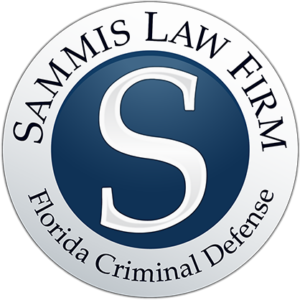Minor in Possession of Alcohol
Before your 21 birthday, it is illegal to possess an alcoholic beverage (often called “under age 21 possession of alcohol“).
Being in possession doesn’t necessarily require that you actually consumed the beverage. The criminal charge of being in possession of alcohol as a minor is charged as a 2nd-degree misdemeanor which is punishable by up to 60 days in jail.
This criminal offense comes with criminal penalties. Additionally, if you are convicted of the offense when you are younger than 18 years old, then you could face a mandatory license suspension.
In most of these cases, if you have no prior record, the prosecutor will offer to put your case in the “Misdemeanor Diversion Program” or “MIP.” Entering a diversion program can come with serious collateral consequences, particularly if you ever get in trouble again. A better result is to get the charge dismissed outright.
In some cases, an experienced criminal defense attorney can convince the prosecutor to just drop the charges outright, especially if the officer didn’t preserve a sample of the alcohol or if the initial detention was illegal in some way.
Officers often neglect to take a sample of the alcoholic beverage and have a hard time proving that it is, in fact, alcohol at trial. In other cases, the officers will have a hard time proving actual or constructive possession.
Sting Operations in Hillsborough to Catch Minors in Possession of Alcohol
Officers with the Hillsborough County Sheriff’s Office and the Tampa Police Department will often conduct sting operations to catch young people. The operations are often conducted at sporting events and concerts. In fact, HCSO will often schedule an “underage beverage detail” at the amphitheater for special events.
Keep in mind that if you are under the age of 18 years old, your case will be heard in juvenile court. On the other hand, if you were 18 to 21 at the time you were cited with the office, then the case will be prosecuted in adult court.
Defenses for Underaged Possession of Alcohol
Florida law provides for several exceptions that allow underaged young people to possess alcohol for certain limited circumstances. For example, young people can serve alcohol in restaurants and bars, at movie theaters and other businesses in the entertainment industry and at retail stores (such as grocery stores).
Students between the age of 18 and 21 can also taste the alcohol as part of their required college coursework without violating the law.
Penalties for a Second Offense of Minor in Possession of Alcohol
A second offense for possession of alcohol by a minor can be charged as a first-degree misdemeanor which is punishable by up to a $1,000.00 fine and up to 12 months in jail. For a second conviction, Florida law requires a mandatory driver’s license suspension for two years.
Zero Tolerance Laws for Underaged DUI
Florida law takes a zero tolerance approach to underage drinking and driving. If a minor has any measurable amount of alcohol in their system while operating a vehicle, even if it was not enough to cause impairment, the driver’s license can be administratively suspended through a notice of suspension citation.
If you receive notice that your driver’s license will be suspended under Florida’s zero tolerance law then contact an experienced attorney Your attorney can request a formal review hearing to contest the suspension within ten days of when you received the notice of suspension.
Additional Resources
University of Tampa Florida’s Alcohol and Drug Prevention Laws – Visit the website of the University of Tampa to learn more about Florida laws related to alcohol and drug prevention for a variety of offenses including Alcohol Laws, Open Containers, Underage Drinking, Providing to Minors, Fake I.D.’s, and Driving Under the Influence.
Finding an Attorney for Possession of Alcohol by a Minor
If you were charged with being in possession of alcohol by a minor then contact an experienced criminal defense attorney at the Sammis Law Firm. We can talk with you about the charges, possible defenses, and ways to fight for an outright dismissal.
Don’t face the judge alone. Let us put our experience to work for you.
Call (813) 250-0500.
This article was last updated on Thursday, July 23, 2020.















